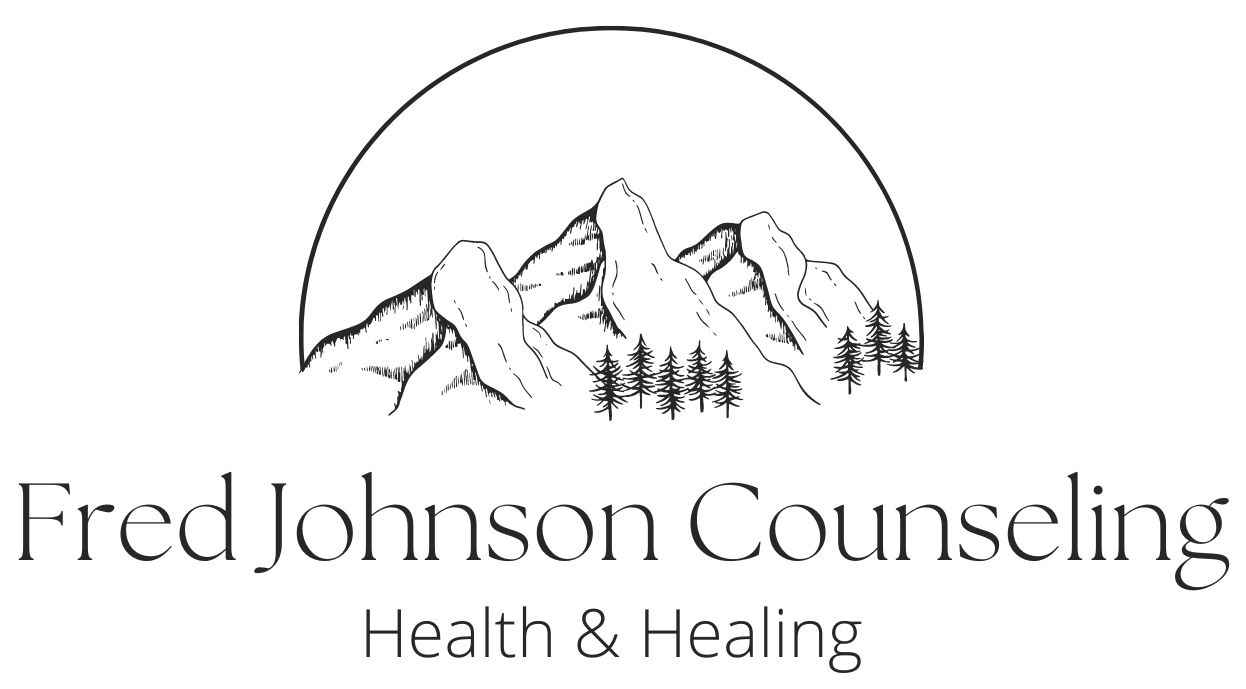How to Find a Counselor (That Fits You)
Fred Johnson • April 10, 2023
What kind of counselor fits your needs?
It is no small thing to pursue counseling for our mental health and overall wellbeing. Most don’t want or expect to ever need counseling. This is similar in how we would rather not need to visit a doctor or deal with a health crisis. Unfortunately, we are never more than a phone call away from needing counseling. Tragedy, trauma, triggers, and life complications can come crashing down in a moment, uninvited. When that happens, it can be an overwhelming process to try and find a counselor, know if you can trust them, or even if they are the right fit for your needs.
While I wouldn’t attempt to write an exhaustive list, here are some tips and questions to ask that can help you narrow your search and feel more confident in the process of finding a counselor.
1. Ask someone you trust.
One of the best places to begin your search is to talk with someone you know and trust to recommend a counselor. Close friends, your doctor, and pastoral staff can be great referral sources. I think it makes the whole process a little easier if you trust the person referring you wants good for your life.
2. Utilize search engines.
Even with a recommendation, (but especially without one) I suggest doing a bit of research on the counselor you are considering. Psychologytoday.com, healthgrades.com, nbcc.org, or simply searching for their website is a great way to read about and learn what makes a counselor a good fit for your needs.
3. Ask about qualifications and experience.
Believe it or not, most counselors are great people who are happy to answer your questions. I would encourage you to ask, “What are your qualifications? What is your licensure and what does that mean? Do you have any experience with this?”
Obviously, no single counselor has “Seen it all.” What is helpful to hear from a prospective counselor is, “I’m willing to listen and understand. I’ll learn with you and be a safe person to explore this difficulty. Together we can work to reach your goals.”
4. Plan your goals for counseling.
Getting ready to go to counseling means, realizing there is a need for it. It can be very helpful to list what you need from a counseling experience and then use that to guide your search. This can be an emotionally triggering process, so be gentle with yourself and share those needs when you’re ready.
5. Ask for a consultation.
Many counselors offer a free consultation prior to scheduling a first session. This is a great opportunity for you to get a feel for their personality, ask lots of direct questions, and get a feel for if you and they may be a good fit. Pay attention to your own responses to the counselor. Did you feel comfortable in their presence? Did the counselor listen well? Did you want to keep talking?
Since most of the success in counseling is due to the relationship quality between counselor and client, its important to find someone you can talk with easily.
Remember, no one was meant to do life alone. You don’t have to face the challenges life brings by yourself. If you’d like someone to walk with you today, feel free to contact me and we can discuss how counseling might fit your needs.

Most of us don’t want to admit it, but the arrival of October signals the official start to the holiday season. Within the next 91 days, there will be everything from spooky lanterns, stuffed turkeys, and sales catalogues arriving in the mail or inbox on the regular. Parties to attend, events to support, and special “once a year” gatherings will all demand our focus and presence. One thing is for certain, If you’re of adult age with even a mild case of responsibility, you will begin to experience what I call, “Holiday Time-Slippage.” Holiday Time-Slippage is the phenomenon wherein the busier and faster our lives become during the holidays, the less time we have to enjoy the holidays. In trying to do it all, we miss all that we do. Ok, I’ll admit I made that up. I even googled it to see if it was a thing. It’s not. Perhaps I just made it a thing, but more likely it is just a fun play on words that ends with this blog post. In either case, I think it’s important to be mindful of the changing of the seasons and what those signals for many. The 16th century produced a carol of Welsh origin we now know as “Deck the Halls.” Within the lyrics, the phrase “‘Tis the season” has become a popular connotation of the holidays in general. Sometimes we use it as a greeting, coping phrase, or in an excusing manner, because after all, “’Tis the season, right?” What we miss in doing so, is the instructive reply the original lyric provides: “… to be jolly.” To experience a cheerful and happy time. In talking with people daily about their lives, I am reminded that not everyone enters this season with the hope of joy and jolly nature. Life can be hard. Holidays can bring triggers, those sharp painful reminders. The holiday seasons can be an extremely isolating time for many. We need the care of each other in these times. We need connection. We need people in our life who will laugh and love, who will share a moment. Maybe you are the person able to provide that for another. Maybe you’re the person who needs that. If I can remind and encourage you today, that in all your seasons upcoming, allow time to simply be jolly.

Each year, on the first day of August, I remind myself that we are closer to the end of the month than ever before. Each day after, as sweltering humid heat swarms us here in the south, I am reminded that it is now one day closer to the sweet relief of fall temperatures. I’m not sure how I would fair, if by chance, I believed the rampant heat waves of August would never leave. Thankfully, I know seasons come and seasons go. The dreaded drudgery of a hellacious August will soon be gone. The expounding beauty of fall, with leaves changing and cool breezes blowing, will soon arrive. Admittedly, this confession of seasonal distaste is a bit melodramatic. Yet, it serves as a practical example of what is known as “tolerable” stress and an adaptive coping response. Types of stress vary, but the three main categories are “good/positive”, “tolerable”, and “toxic” (1). These categories are not concrete or strictly defined by rules and circumstance necessarily. What is “good” stress for one person, may be “toxic” for another. Throughout our lives, the same stressors can change categories multiple times. Stress levels depend on the degree to which a person perceives control over a stressor or situation and whether they have support systems or resources in place to handle the stressor over their lifespan (2). A flat tire one day may be nothing other than a slight inconvenience. Yet on another day, it may represent all the uncontrollable forces keeping you from arriving on time to an important job interview. An easier way of saying all of this is, when we lose our sense of being (ability to control or make decisions) to a circumstance, we are a susceptible to toxic stress. This is where endurance comes in. I would love to say there is short and simple method to reduce and mitigate all toxic stress in our lives. Unfortunately, this just isn’t so. It doesn’t need to be. Because life, people, the world we live in, are all super complicated. What is important and hopeful: the effects of chronic/toxic stress in the brain and body are responsive to recovery and healing. Let’s talk about endurance as a helper for stress. Endurance, or the ability to withstand hardship or adversity, can be a simple, but effective tool to transition from toxic stress to tolerable stress. Enduring is a mindset of “thriving despite”. Thriving despite the terrible. Living beyond the hurt or difficulty. Healing to be able to accept good again. The difference in the stress types is significant. Remember that our perception plays a major role in which is which. Positive/good stress: normal life challenges such as receiving a promotion, learning a new skill, exercise, or having a child. Here we are allowed goals, enjoy success, and try new things. Choice remains in these. Tolerable stress is usually non-normative. Examples are loss of a loved one, serious illness, or natural disasters. There is a sense of unfairness in this. Often the choice to feel good is removed or feels wrong to do so. Our choice is questioned here. Toxic stress is typical adverse and inappropriate. Over time it can carry heavy physical and psychological consequences. All of life is darkened by this. Seeing good is tinted by what we have been through or currently in. We usually feel there is no choice in these. Abuse, intimate partner violence, Determining in our mind, to endure, withstand, and survive a critically difficult situation can move us from toxic stress to the tolerable type, then eventually the good type of stress. Living to allow good again. If ever there was a sentence that embodied the old phrase, “easier said than done” ---- that one was it. Tragically, it seems toxic stress only makes us good at surviving trauma or the terrible. It limits our ability to enjoy or even to see the beauty in a moment. The healing process allows us to be more human than before toxic stress skewed our view of the world. Talking with a counselor can be a critical part of healing. I hope that perhaps today in reading this, you’ve found a tool to help enduring despite what you’re up against. Notes: 1. https://center.uoregon.edu/StartingStrong/uploads/STARTINGSTRONG2016/HANDOUTS/KEY_49962/TypesofStress.pdf 2. https://www.ncbi.nlm.nih.gov/pmc/articles/PMC2864527/

